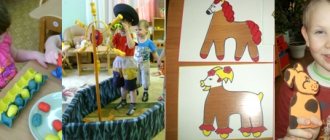The topic of a child’s adaptation to kindergarten does not lose its relevance. Many parents are faced with difficulties in getting their son or daughter accustomed to new conditions and do not know how to properly resolve them.
In this article, we will tell moms and dads what a child’s adaptation to a preschool institution involves, what degrees and stages of adaptation exist, and how to help the child adapt to the children’s group as quickly as possible.
Make sure that your child's adaptation is going smoothly or check if he has any problems so that you can help in time. Use the “Where are my children” application in combination with a children's smart watch - instantly contact your child, listen to the sound around you and always know where he is.
What is adaptation?
Imagine the world of a small child. Beloved mom and dad, familiar toys, a warm bed, familiar surroundings and daily routine.
And suddenly one day everything changes. His mother takes him to an unfamiliar place and leaves him with a strange aunt. Everything in this place is foreign - the toys, the crib, and the food are not the same as at home. And most importantly, there are a lot of unfamiliar children there, who often cry, and some may even offend. At this point you need to listen to the teacher and do everything she says. This place is called kindergarten...
⠀
Finding himself in an unfamiliar environment, the child is in a state of extreme stress. In order for him to get used to it, he must go through a period of adaptation. This term means the ability to adapt to environmental conditions, to adapt to them.
During adaptation, the activity of almost all systems of the child’s body undergoes a restructuring.
Adaptation of a child to the conditions of a kindergarten is usually accompanied by the following phenomena:
- regression of skills occurs (the child temporarily “forgets” how to go to the potty, hold a spoon, etc.);
- sleep and appetite worsen;
- the child looks depressed, lethargic, lethargic;
- frequent whims, hysterics for any reason.
There are 3 categories of children. For some, adaptation problems begin immediately, for others - after 2-3 weeks, for others there are no visible changes. This is due to many factors and depends on the adaptive capabilities of the child’s body.
You should not be afraid of changes in the behavior of your son or daughter. In this way, the child’s body copes with the stress and adapts to new conditions.
Degrees of adaptation
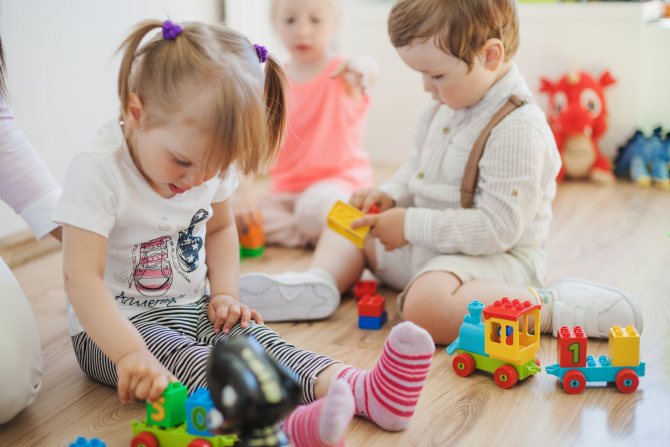
Designed by Freepik
There are mild, moderate and severe degrees of adaptation of a child to kindergarten.
Easy degree
A child with a mild degree adapts on average in 2-4 weeks. An easy degree of adaptation will be characterized by the following indicators:
- Sleep : the child sleeps peacefully during daytime and nighttime sleep, may sometimes wake up, but easily falls asleep again.
- Appetite : good, may be selective in dishes.
- Emotional state : even, calm.
- Behavior : without tears or hysterics, he lets go of his mother and remains in the group. Can keep himself busy playing.
- Communication with adults and peers: makes contact with teachers and children, can ask the teacher for help, gets involved in games with peers.
Even with a mild degree of adaptation, the child may initially experience sleep and appetite disturbances.
Average degree

The average degree of adaptation lasts more than a month. The child is often sick, and getting used to kindergarten is difficult due to long breaks.
Adaptation of moderate severity can be judged by the following criteria:
- Sleep: the child sometimes does not sleep during quiet hours; if he falls asleep, his sleep is restless and intermittent.
- Appetite: may refuse some dishes, eats little.
- Emotional state: often cries, is sad, mood changes for minor reasons. Can keep himself busy with the game, but for a short time.
- Behavior: has difficulty parting with his mother, and after she leaves he stands alone at the window for a long time.
- Communication with adults and peers: shows no interest in communication, constantly asks the teacher if mom will come soon.
A child with a severe degree of adaptation may take more than 2 months to get used to kindergarten, or may not get used to it at all. Then doctors recommend refusing to attend preschool.
Severe degree
Severe addiction is typical for children with disabilities.
The fact that it is not easy for a child to adapt to kindergarten can be judged by the following indicators:
- Sleep : the child does not sleep during quiet hours. At night, sleep is restless, intermittent, and there are night terrors.
- Appetite : decreased, may refuse to eat.
- Emotional state: depressed, the child seems to withdraw into himself or, on the contrary, is aggressive.
- Behavior: after mom leaves, she cries, screams, does not want to go into the group, and can sit in the locker room for a long time.
- Communication with adults and peers: does not make contact or shows aggression towards children and adults.
The completion of a child’s adaptation period can be judged by the stabilization of all indicators.
Make sure that your child's adaptation is going smoothly or check if he has any problems so that you can help in time. Use the “Where are my children” application in combination with a children's smart watch - instantly contact your child, listen to the sound around you and always know where he is.
Stages of addiction

The process of a child getting used to kindergarten takes place in several stages.
Stage 1 – period of maladjustment. No matter how the parents prepare the child for the nursery, at first he will still be in a state of stress and constant tension. It is difficult for a child to part with his parents; he often cries and is capricious. Colds may begin.
Stage 2 – adaptation period. The protective mechanisms of the psyche are triggered, the child begins to communicate with the teacher and other children, participates in games, but still misses his parents and often asks about them. At this stage, the baby is just beginning to get used to the new rules, so he may violate discipline and refuse to comply with the teacher’s demands.
Stage 3 – compensation period. The adaptation process is completed, the child gets used to the children's team, teachers and the new daily routine, and calmly lets his parents go for the whole day. The emotional background stabilizes, physiological indicators return to normal.
How long each stage will last depends on the individual characteristics of the baby.
Perform developmental exercises from Ikyusha
Mathematics
Reading
The world
Logics
English language
Stages of addiction
We talked about the degrees and stages of children’s adaptation to kindergarten, but also every baby goes through a period of adjustment. What is important to know about this?
Stage 1 - maladjustment.
No matter how successful the preparatory adaptation is, at first the baby will still be in a state of stress and anxiety. Even the most active and sociable children need time to get used to parting with their parents. Colds appear.
Stage 2 - adaptation.
The child begins to gradually get used to the new regime, other children and adults, and participates in games, although he continues to miss his family and ask if they will take him away. Changeable moods, whims, and refusal to comply with the teacher’s requests may be observed.
Stage 3 - compensation.
At the final stage of adaptation, the baby is already emotionally stable and calmly remains in the garden for the whole day, eats and sleeps well. The child begins to get sick less often.
The influence of various factors on adaptation
How long it will take a child to get used to a child care facility is influenced by many factors. Let's look at the main ones.
Child's age
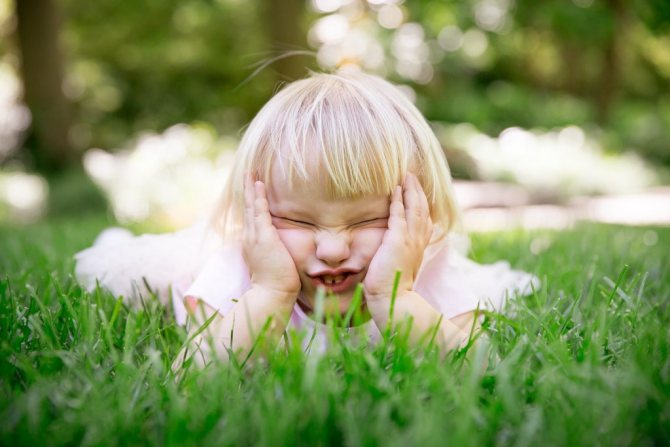
The situation is such that many mothers strive to send their children to kindergarten as soon as possible and go back to work after maternity leave. Therefore, recently the need for nurseries has increased, starting to accept children from one and a half years old, which not every preschool institution has.
Most experts believe that the younger the child, the more difficult his adaptation period is, since the immune system has not yet strengthened and the need for parental care and attention has increased.
Therefore, the optimal age for starting kindergarten life is considered to be 2.5 - 3 years. And pediatricians insist that parents send their children to kindergarten no earlier than three years of age.
Read detailed material with expert opinions on this topic – Is it time to go to kindergarten? When is the best time to give up a child and what does a parent need to know?
Health status
As we have already said, children with limited health capabilities or private colds and chronic diseases have a hard time getting used to kindergarten.
Therefore, parents should postpone kindergarten and wait until the child’s body can adapt to preschool without serious consequences.
Level of development of skills and abilities

By the beginning of kindergarten life, children should have all the necessary skills and abilities: go to the potty, hold a spoon, drink from a cup, partially dress and undress themselves, and also be able to ask an adult for help.
If parents are used to doing everything for the child, it will be difficult for him to get used to independence. Accordingly, his adaptation period may be prolonged.
Level of socialization
In kindergarten, the child will have contact with a large number of children and adults. It’s good if he already has such communication experience. Otherwise, it will be very difficult for a child who is accustomed to seeing only his mother and father next to him to get used to the children's team and teachers.
How to get your child to talk if you suspect that he is being bullied or beaten in kindergarten?
Also, the duration of adaptation depends on the personality of the teacher to whom the child is assigned, the number of children in the group, the characteristics of the child’s nervous system and the atmosphere in the family.
Parents' mistakes during child adaptation
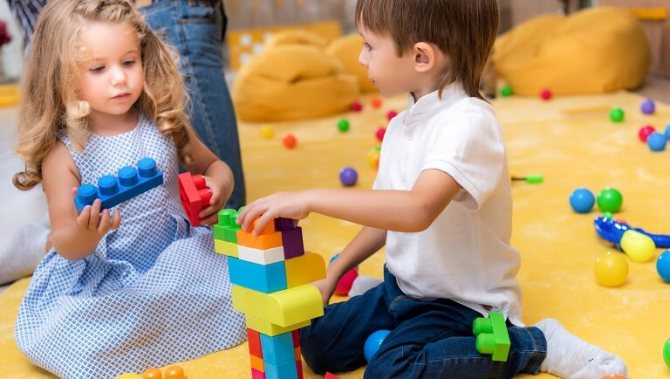
We must not forget that the child constantly observes the behavior of his parents, their mood, timbre of voice, and facial expressions.
Respect and kindness towards teachers is the key to a child’s positive attitude. If mom is friendly and calm in her communication, then she is a “good aunt,” that is, you can treat her without fear.
Sometimes parents try to run away quickly when the baby is distracted or playing. This cannot be done. It’s easier for him to know that his mother has left and will return soon than to worry about where she has gone and whether she will come at all.
If the baby has some not very good habit (for example, sucking a pacifier), you should not wean it off at the same time as your first trip to kindergarten (do not aggravate the stress). It is better to do this much earlier than the preparatory stage of adaptation to preschool education begins.
You should not stand at the door, leaving the child with the teacher and other children. Children are very sensitive and, sensing the anxiety of adults, they themselves begin to be afraid.
Children's feelings should not be ignored. Notations will only worsen the negative attitude towards the kindergarten. Instead of: “Stop crying, you’re already big...”, etc. It’s better to be understanding, saying that you also miss you and don’t want to leave, but you have obligations (you need to go to work, etc.)
How to help a child adapt?
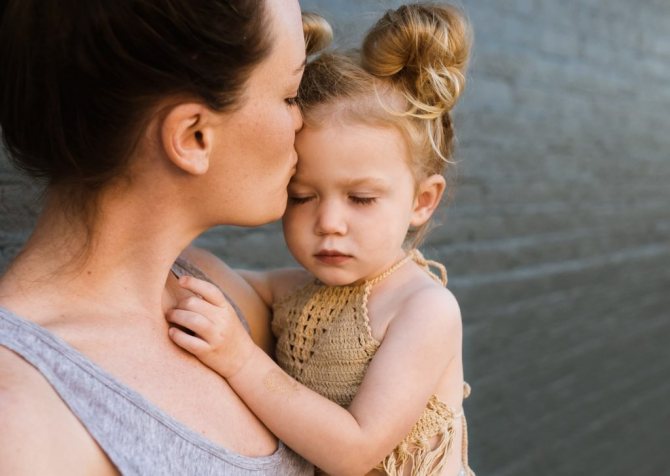
Rules for successful adaptation
- Rule 1. Get to know the kindergarten staff, daily routine and living conditions in advance.
- Rule 2. The child’s adaptation to kindergarten should occur either in the summer or in the winter to reduce the risk of infectious diseases.
- Rule 3. Vaccinations, medical examinations and other visits to doctors must be strictly before the child enters kindergarten.
- Rule 4. In the first days, the child must stay in kindergarten for 1-2 hours. It’s good if this time coincides with a morning walk.
- Rule 5. The child’s time in the group should be increased gradually, taking into account the teacher’s recommendations.
- Rule 6. If a child is sick, mom or dad needs to stay home with him.
- Rule 7. Parents must warn the teacher about all the peculiarities of the child’s behavior, his habits and inclinations.
- Rule 8. When taking your baby home, be sure to ask the teacher how the child behaved during the day.
By following all these rules, parents greatly facilitate the child’s adaptation period in kindergarten.
Psychologist's advice

- Your child needs to be prepared for kindergarten in advance.
Show your child the building, the windows of the group where he will be, and the area for walking. Meet the teachers. It’s not bad if the child learns their names before the first visit. Draw your son or daughter's attention to the fact that parents take all children home in the evening; no one stays overnight.
- The more a child knows about the rules of behavior in a child care facility, the easier the adaptation period will be for him.
The famous Moscow teacher Tatyana Vladimirovna Ostrovskaya invites parents to play a game with their children called “Kindergarten for Animals” before visiting kindergarten. You can use soft toys, dolls, construction sets. The child, together with mom and dad, creates various play situations: “Coming to kindergarten”, “Farewell to mom”, “Breakfast”, “Walk”, “Quiet hour” and others. Thus, the child gets acquainted with what awaits him in kindergarten in a homely atmosphere.
- A child’s ability to successfully adapt largely depends on the psychological attitude of the parents.
The calmer mom and dad are about their child’s visit to preschool, the more confident the child feels in an unfamiliar group.
- Don't forget to develop the necessary self-care skills. Try to give your baby more independence, even in things that he doesn’t yet know how to do.
- Pay attention to developing your child’s communication skills.
He must be able to communicate not only with children, but also with adults. Practice your communication skills when visiting, on the playground, or when visiting relatives.
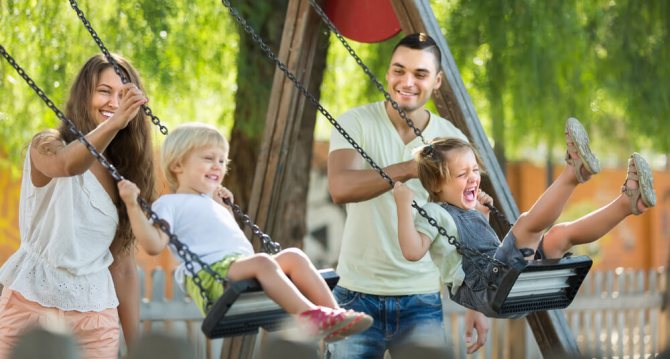
- The home menu, as well as the regime, should be as close as possible to the garden. Even during weekends and holidays.
- Be friendly and polite to teachers. After all, these are the people to whom you trust the most valuable thing - your child. And not only you, but 20 other moms and dads like you.
- During the adaptation period, the child should not have any additional stress, such as moving, parental divorce, or the birth of a second child. Try to provide a calm family environment.
- Be calmer about illnesses after visiting kindergarten.
During the adaptation period, the child’s sensitivity to all environmental influences increases. Plus, the body cannot always cope with the mental load. “Going into illness” is a protective reaction of the body, both children and adults. The sick child remains in his home, familiar environment. This will continue until he feels safe and comfortable not only at home, but also in kindergarten.
- There are special therapeutic fairy tales that help the baby ease his adaptation to kindergarten. Read them at night and discuss them with your child. It will also be useful to watch cartoons, look at illustrations and photographs of mom and dad from kindergarten.
- Do not forget that after a long break (for example, due to illness), the child’s adaptation process begins anew. This means that problems such as painful separation from mom, tears, hysterics and reluctance to go to kindergarten return.
- Use modern technologies to calm your anxiety and find out how your child has settled into a new place, whether his peers are bullying him, and whether his teachers are behaving correctly. Buy a GPS watch for your child (they are available even for the youngest) and install the “Where are my children” application on your smartphone. With this kit, you can instantly contact your child and listen to what is happening around him in kindergarten while you are not around. When purchasing a children's smartwatch on the official website, the “Where are my children” license comes as a gift!
- If you are concerned about strong changes in your child’s behavior associated with the adaptation period, seek help from a psychologist.

What is not recommended to do during the adaptation period?
- Sit in the locker room while the child is in the group.
- Leaving secretly without saying goodbye to the child.
- Scold and punish for not wanting to stay in kindergarten.
- Leaving the child for the whole day after a long break.
- Speak negatively about teachers and preschool institutions.
- Deceive the child: say that you will pick him up soon if you yourself plan to leave your son or daughter until the evening.
- Bringing a sick child to kindergarten.
- “Bribe” the child with sweets and toys for his stay in the nursery.
Conditions for successful adaptation of children to preschool educational institutions
Experts identify conditions under which it is easier for children to adapt. Thus, those children whose parents began to prepare in advance for attending a preschool institution get used to kindergarten more easily. It is easier for physically healthy, independent children to adapt – “independence” here means the ability to at least partially dress, maintain good hygiene, and eat with a spoon.
The regime is very important. If at least a month before entering kindergarten, parents change the regime so that it coincides with the preschool education regime, then it will be easier for the child to get used to it.
How to make it easier to separate from your child in kindergarten?
In order for your baby to learn how to painlessly let you go and go to the group, follow these simple recommendations:
- prepare your child in advance for the idea that he needs to go to kindergarten every day while mom and dad are at work;
- on the way, tell your child how good he will be there today, what interesting games he will play there, what delicious things the aunt-cooks will cook, etc.;
- come up with your own farewell ritual for your child. This could be a kiss on the cheek and the touching of palms or a short poem. The main thing is to always follow it when parting with your son or daughter, not only in kindergarten, but also at home;
- Allow your child to take his favorite toy with him. In the absence of his mother, he will be much calmer if there is something close and familiar;
- Monitor your own emotional state. All your anxieties and fears will certainly be passed on to your child;
- clearly inform your child about the time of your arrival: after lunch, after sleep, in the evening, so that he does not have vain expectations.
Remember, dear mothers and fathers: the key to a child’s successful adaptation to kindergarten is the correct preparation of the baby, the psychological literacy of the parents, as well as a family atmosphere of comfort and emotional well-being.
2
What can't you do?
In order not to cause fear and persistent rejection of kindergarten in the baby, the following is strictly prohibited:
- take a sick child to kindergarten;
- deceive the baby by saying that you will pick him up very soon, if in fact you do not plan to do this;
- scold or punish the baby because he does not want to part with you;
- speak poorly about teachers or conditions in the kindergarten;
- Comparing the baby with other children is not in his favor.
You need to understand that adaptation to kindergarten is a complex process and it can take a lot of time. The main thing that a baby needs both at 2-3 years old and at 5 years old is parental love and understanding. With them, the problem of a child’s adaptation to kindergarten will be completely solvable and the baby’s first step towards adulthood will take place without much loss.
Author: Yana Semich, especially for Mama66.ru





